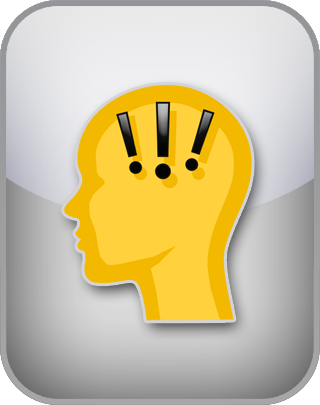Academically reviewed by Dr. Jennifer Schulz, Ph.D., associate professor of psychology
3 Minute Anxiety Test
Based on the work of Dr. Robert L. Spitzer, M.D.
Instructions: Below is a list of questions that relate to life experiences common among people who have been diagnosed with anxiety. Please read each question carefully, and indicate how often you have experienced the same or similar challenges in the past few weeks.
Your privacy is protected. All results are anonymous.
Question 1 of 10
Over the past weeks, how often have you been bothered by...
Feeling afraid, as if something awful might happen?
NEXT
The IDRlabs 3 Minute Anxiety Test (IDR-3MAT) was developed by IDRlabs. The IDR-3MAT is based on the work of Dr. Robert L. Spitzer, M.D. and the GAD-7 anxiety screening tool. The IDR-3MAT is not associated with any specific researchers in the field of psychopathology, or any affiliated research institutions.
The Generalized Anxiety Disorder 7 (GAD-7) is a self-administered questionnaire designed to measure the presence and severity of Generalized Anxiety Disorder (GAD) in a person.
GAD is a psychological condition characterized by consistently recurring states of worry and fear, which may also lead to physiological symptoms (such as tiredness, sweating, and trembling). Those suffering from GAD are often disproportionally anxious when considering the actual, genuine danger and threats involved. GAD is thought to affect nearly 4% of the general population at some point in their life. The extent to which one suffers from this debilitating condition can be measured using the GAD-7.
The GAD-7 was first released in 2006 by the psychiatrist Dr. Robert L. Spitzer, Dr. Kurt Kroenke, M.D., Williams J.B., Löwe B. and colleagues. It is licensed by Pfizer, Inc., although they had publicly released the questionnaire for free use in 2010. The GAD-7’s main selling point is its very short length: Containing just seven questions, it can be taken very quickly and give a rough overview of one’s degree of anxiety. Because of their simplicity and lack of copyright restrictions, the test items are also often used in surveys for psychological, sociological, and personality research.
The GAD-7 test taker answers each of the seven questions with a response on a scale. “Not at all” is assigned zero points, “Several days” amounts to one point, “More than half the days” is two points, “Nearly every day” is three points. The higher one’s total score on the test is, the more severe one’s degree of GAD. Higher scores correlate positively with impairment in daily functioning.
Because its items screen for broad anxiety symptoms, the test can also give an indication of one’s degree of similar conditions such as Panic Disorder (PD), Social Anxiety Disorder (SAD), and Post-Traumatic Stress Disorder (PTSD).
The test is intended to be used for educational purposes only. A definitive mental health assessment can be made only by a qualified professional.
As the publishers of this free online 3 Minute Anxiety test, which allows you to screen yourself for the signs and symptoms of this mental health impediment, we have strived to make the test as reliable and valid as possible. However, free online tests and quizzes such as the present 3 Minute Anxiety Test do not provide professional assessments or recommendations of any kind. For more detailed information about the current test or any of our other online psychological tests, please consult our Terms of Service.
References
- Spitzer RL, Kroenke K, Williams JB, Löwe B. A brief measure for assessing generalized anxiety disorder: the GAD-7. Arch Intern Med. 2006 May 22;166(10):1092-7.
- Ruiz MA, Zamorano E, García-Campayo J, Pardo A, Freire O, Rejas J. Validity of the GAD-7 scale as an outcome measure of disability in patients with generalized anxiety disorders in primary care. Journal of Affective Disorders. 2011;128:277–286.
- Kroenke K, Spitzer RL, Williams JBW, Monahan PO, Löwe B. Anxiety disorders in primary care: prevalence, impairment, comorbidity, and detection. Ann Intern Med 2007;146:317- 325.

 English
English  Español
Español  Português
Português  Français
Français  Polski
Polski 